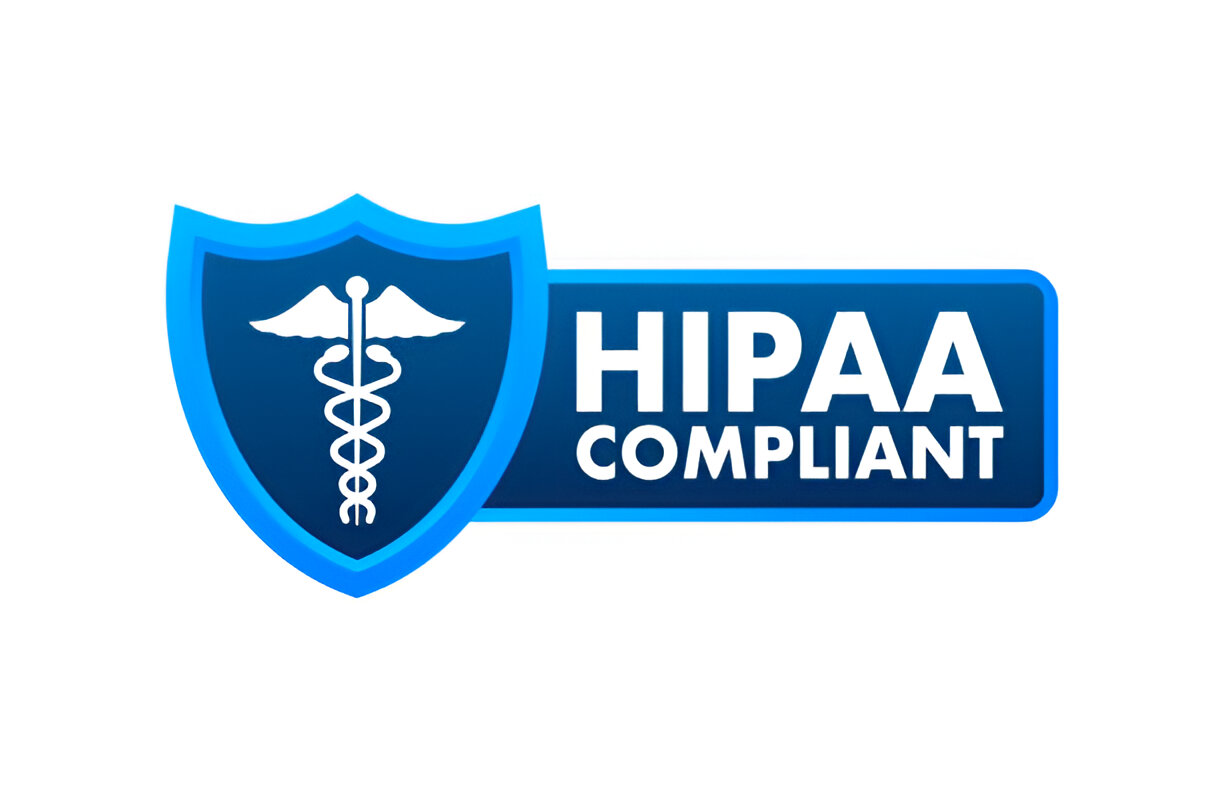Managing a therapy practice involves juggling multiple tasks, from scheduling appointments and tracking client progress to handling billing and ensuring compliance with healthcare regulations. For therapists, these responsibilities can become overwhelming without the right tools in place. Therapist practice management tools offer a comprehensive solution to streamline day-to-day operations, improve client care, and enhance the overall efficiency of your practice.
In this article, we’ll explore the essential therapist practice management tools, key features to look for, and how these tools can benefit your practice. Whether you’re an individual therapist or part of a larger mental health clinic, adopting the right software solutions will help you manage your time more effectively and focus on delivering better client outcomes. For tailored solutions in practice management, check out Mental Health IT Solutions (MHIS).
Table of Contents:
- What Are Therapist Practice Management Tools?
- Key Features of Therapist Practice Management Tools
- Benefits of Using Therapist Practice Management Tools
- Essential Tools for Therapist Practice Management
- How to Choose the Best Practice Management Tool for Your Therapy Practice
- The Role of Telehealth Integration in Practice Management
- Security and HIPAA Compliance
- Challenges in Implementing Practice Management Tools and How to Overcome Them
- Future Trends in Therapist Practice Management Tools
- Frequently Asked Questions (FAQs)
What Are Therapist Practice Management Tools?
Therapist practice management tools are software solutions designed to simplify and automate various administrative tasks involved in running a therapy practice. These tools cover a wide range of functions, including scheduling appointments, managing client records, processing payments, tracking client progress, and ensuring compliance with regulations such as HIPAA (Health Insurance Portability and Accountability Act).
For mental health professionals, these tools play a critical role in reducing the administrative burden, allowing them to dedicate more time to client care and therapy sessions. A good practice management tool integrates multiple features into a single platform, providing a holistic solution for running a therapy practice efficiently.
Key Features of Therapist Practice Management Tools
When selecting therapist practice management tools, it’s important to ensure that they offer a comprehensive set of features to meet the unique needs of your practice. Here are some essential features to look for:
1. Client Scheduling and Appointment Management
Scheduling is a crucial part of running a therapy practice. A reliable practice management tool should include:
- Online appointment booking: Allow clients to book appointments online.
- Automated reminders: Send email or SMS reminders to reduce no-shows.
- Calendar synchronization: Sync appointments with your Google Calendar, Outlook, or other calendar tools.
2. Electronic Health Records (EHR)
An EHR system is essential for storing and managing client records securely. Key features include:
- Client intake forms: Digitize client intake forms to streamline the onboarding process.
- Progress notes: Record therapy notes, assessments, and treatment plans.
- Medical history: Store client history and relevant documents in one place.
3. Billing and Invoicing
Billing can be a complex task, especially for therapists who accept insurance. Look for tools that offer:
- Insurance claims management: Automatically submit and track insurance claims.
- Client invoicing: Generate and send invoices for services rendered.
- Payment processing: Integrate payment gateways to accept credit card payments or electronic transfers.
4. Telehealth Integration
With the rise of online therapy, having telehealth functionality built into your practice management tool is critical. Features to look for include:
- Secure video conferencing: Provide HIPAA-compliant video sessions for remote therapy.
- Client portals: Allow clients to access therapy notes, schedule appointments, and communicate with you securely.
5. Task and Workflow Automation
Automation tools help you manage your practice more efficiently by automating repetitive tasks, such as:
- Appointment confirmations: Automatically send confirmation emails when appointments are booked.
- Follow-up emails: Automate the sending of follow-up reminders after therapy sessions.
6. Client Communication Tools
Effective communication is key in a therapy practice. Look for features such as:
- Secure messaging: Communicate securely with clients through the platform.
- Group messaging: Send bulk updates or announcements to multiple clients when necessary.
7. Reporting and Analytics
Data-driven insights are important for improving the efficiency of your practice. Features include:
- Financial reports: Track income, expenses, and cash flow.
- Client progress tracking: Generate reports on client outcomes, session notes, and therapy effectiveness.
8. HIPAA Compliance
Given the sensitivity of client information, it’s critical that the tools you use comply with HIPAA regulations. Look for:
- Data encryption: Ensure that client data is encrypted both in transit and at rest.
- Audit logs: Track who has accessed client records and when.
- Business Associate Agreement (BAA): Ensure the software vendor provides a BAA, guaranteeing HIPAA compliance.
Benefits of Using Therapist Practice Management Tools
1. Increased Efficiency
One of the main advantages of using therapist practice management tools is the increased efficiency they provide. Automating administrative tasks like scheduling, billing, and record-keeping reduces the workload on therapists and their staff, allowing more time to focus on patient care.
2. Better Client Experience
Clients appreciate the convenience of being able to book appointments online, access their records, and communicate with their therapist securely. With automated reminders and telehealth options, clients are less likely to miss appointments and can engage with therapy more consistently.
3. Reduced Administrative Burden
Managing a therapy practice involves a lot of paperwork, from client intake forms to insurance claims. Practice management tools reduce the time spent on these tasks by streamlining document handling, automatically submitting insurance claims, and simplifying invoicing.
4. Improved Record Keeping
Maintaining accurate records is essential in any healthcare setting. Practice management tools allow therapists to store all relevant client information in one place, ensuring it’s secure, organized, and easily accessible.
5. Compliance with Healthcare Regulations
Therapists must comply with strict regulations, including HIPAA, to ensure the privacy and security of their clients’ information. Practice management tools are designed with these regulations in mind, helping therapists maintain compliance effortlessly.
Essential Tools for Therapist Practice Management
There are several software platforms available that cater specifically to the needs of mental health professionals. Below are some of the best options for therapist practice management tools:
1. SimplePractice
One of the most popular practice management tools, SimplePractice offers features like client scheduling, billing, and secure telehealth. It’s user-friendly, HIPAA-compliant, and provides customizable progress notes and client intake forms.
2. TheraNest
TheraNest is a comprehensive practice management solution for mental health professionals. It includes features like EHR, appointment scheduling, telehealth, billing, and outcome measurement tools. TheraNest is ideal for solo practitioners and group practices alike.
3. TherapyNotes
TherapyNotes provides an all-in-one solution for managing your therapy practice, including tools for scheduling, note-taking, and billing. It integrates with telehealth platforms and offers a user-friendly client portal.
4. Kareo
Kareo is designed for mental health professionals and offers features like telehealth integration, EHR, billing, and insurance claims management. It’s ideal for practices that need more advanced billing capabilities.
5. Jane App
Jane is a practice management software with telehealth features, online booking, billing, and client charting. It’s particularly popular among mental health professionals for its ease of use and flexibility.
How to Choose the Best Practice Management Tool for Your Therapy Practice
Choosing the right therapist practice management tool can be overwhelming with so many options available. Here are some factors to consider when selecting the best tool for your practice:
1. Specific Needs of Your Practice
Consider the size of your practice, the types of services you offer, and whether you need features like telehealth integration or insurance billing. A solo practitioner may need different features compared to a large group practice.
2. Ease of Use
Your practice management tool should be easy to navigate for both you and your clients. A steep learning curve can lead to inefficiency and frustration, so choose software with a user-friendly interface.
3. Cost
Compare the costs of different platforms, including subscription fees, additional charges for premium features, and payment processing fees. Make sure the platform fits within your budget while still providing the features you need.
4. Security and Compliance
For healthcare providers, HIPAA compliance is non-negotiable. Ensure that the tool you select provides adequate security features such as encryption, secure logins, and audit trails. Additionally, verify that the provider offers a BAA.
5. Customer Support
Reliable customer support is critical when using practice management software. Choose a provider that offers timely support through multiple channels, including phone, email, and live chat.
The Role of Telehealth Integration in Practice Management
The rise of telehealth has transformed the way therapists interact with clients. Telehealth integration in practice management tools is a must for therapists who want to offer online therapy sessions.
1. Convenience for Clients
Telehealth allows clients to attend therapy sessions from the comfort of their homes, eliminating the need for travel and providing greater flexibility in scheduling. This convenience can improve client satisfaction and engagement.
2. Expanded Client Base
With telehealth, therapists can reach clients outside of their immediate geographic area. This expands the potential client base, particularly for those in rural or underserved areas.
3. Seamless Integration with EHR
Telehealth platforms integrated with practice management tools ensure that client records are updated automatically after each session. This simplifies the record-keeping process and ensures consistency in client documentation.
4. HIPAA Compliance
It’s important to ensure that any telehealth tool integrated into your practice management system is HIPAA-compliant, offering secure video conferencing and encrypted communication channels.
Security and HIPAA Compliance
When it comes to managing a therapy practice, ensuring the security and privacy of client information is paramount. HIPAA compliance is a critical requirement for any tool that handles patient data.
1. Data Encryption
Ensure that any practice management software you choose encrypts client data both at rest and in transit. This protects sensitive information from unauthorized access.
2. Secure Logins
Multi-factor authentication (MFA) adds an extra layer of security to your practice management tool. This ensures that only authorized users can access client information.
3. Audit Logs
HIPAA regulations require that healthcare providers maintain a detailed audit log showing who has accessed client information and when. This is important for tracking access and identifying any potential security breaches.
4. Business Associate Agreement (BAA)
If you’re using a third-party software provider, ensure that they are willing to sign a BAA. This legally binds the provider to adhere to HIPAA regulations and protect client data.
Challenges in Implementing Practice Management Tools and How to Overcome Them
1. Staff Resistance
Introducing new technology can sometimes be met with resistance from staff who are used to traditional methods. To overcome this, provide comprehensive training and emphasize the long-term benefits of the software.
2. Data Migration
Transitioning from paper records or another software platform to a new practice management tool can be challenging. Ensure that the provider offers data migration services to make the transition smoother.
3. Cost Concerns
While practice management tools can require an upfront investment, the long-term benefits of increased efficiency and reduced errors often outweigh the initial costs. Consider tools with flexible pricing plans that fit your budget.
Future Trends in Therapist Practice Management Tools
As technology continues to evolve, therapist practice management tools are becoming more sophisticated. Here are some future trends to watch for:
1. AI and Automation
Artificial intelligence (AI) will play a bigger role in automating administrative tasks, such as scheduling, billing, and even progress note generation. This will allow therapists to focus more on client care.
2. Improved Telehealth Functionality
Telehealth will continue to grow in importance, with improved video quality, better integration with EHR systems, and enhanced security features.
3. Client Engagement Tools
Future practice management tools will offer more features to engage clients between sessions, such as mobile apps for self-care, progress tracking, and therapy homework assignments.
4. Interoperability
Practice management tools will increasingly integrate with other healthcare systems, allowing for better collaboration and data sharing between mental health professionals and other healthcare providers.
Frequently Asked Questions (FAQs)
1. What are therapist practice management tools?
Therapist practice management tools are software solutions designed to streamline the administrative tasks involved in running a therapy practice, such as scheduling, billing, client communication, and record-keeping.
2. What are the benefits of using practice management tools for therapists?
Benefits include increased efficiency, improved client experience, reduced administrative burden, better record-keeping, and enhanced compliance with healthcare regulations.
3. How do practice management tools ensure HIPAA compliance?
HIPAA-compliant practice management tools provide data encryption, secure access controls, audit logs, and a Business Associate Agreement (BAA) to ensure client information is protected.
4. What features should I look for in a practice management tool?
Key features include appointment scheduling, EHR, billing and invoicing, telehealth integration, client communication, and workflow automation.
5. How do telehealth tools integrate with practice management software?
Telehealth tools integrate by offering secure video conferencing, updating client records automatically after sessions, and providing HIPAA-compliant communication channels.
For more information on therapist practice management tools and how to streamline your practice, visit Mental Health IT Solutions (MHIS). With the right tools, you can optimize your practice, improve client care, and enhance overall efficiency.







